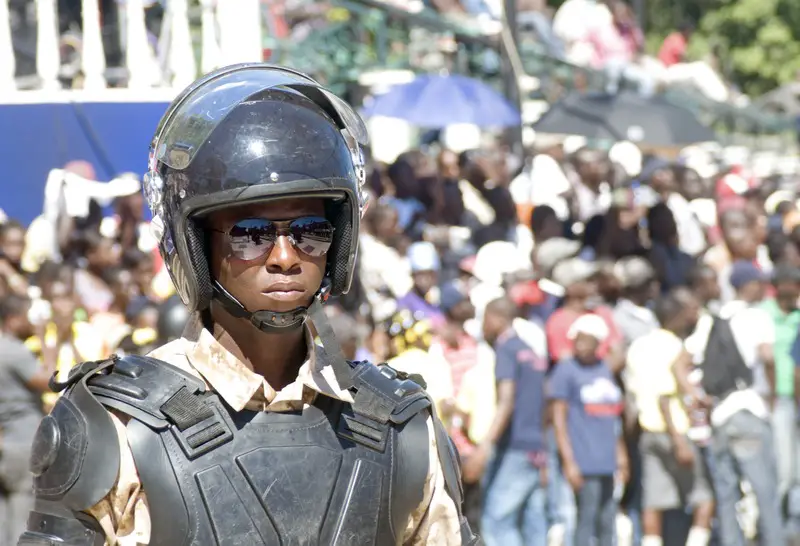A horrifying massacre in Port-au-Prince in Haiti left a minimum of 184 individuals dead over Friday and Saturday, December 6-7, highlighting the escalating instability in the country grappling with rampant gang violence for years.
The massacre was reportedly a planned attack on the elderly residents in the Cité Soleil neighborhood. Monel “Mikano” Felix, the leader of the Wharf Jérémie gang, is said to have ordered the killings.
The National Human Rights Defense Network (RNDDH) reports that following the illness and subsequent death of his child last Saturday, Felix consulted a voodoo priest. The priest accused the elderly residents of the area of practicing witchcraft, implying they were responsible for the child’s death. “Felix ordered the killings, and at least 110 people aged 60 and older were slaughtered over the weekend, many with machetes and knives,” detailed the RNDDH.
Cité Soleil is one of the most densely populated and impoverished neighborhoods in Port-au-Prince. The area has been a hotspot for violence for a long time. This recent massacre is among the deadliest incidents in the Haitian capital this year. The United Nations High Commissioner for Human Rights, Volker Türk, confirmed the death toll in a press briefing in Geneva, pointing out that the total number of deaths related to gang violence in Haiti in 2024 has reached at least 5,000.
“This is an appalling example of the brutality that has taken over large parts of the country,” Türk stated, pleading for the international community to provide more support to Haiti.
The influence of gangs has grown in Port-au-Prince and other areas due to the ongoing political disorder that started after the assassination of President Jovenel Moïse in 2021. As per human rights organizations, nearly 80% of the capital is now under the control of armed gangs.
This increasing violence has led to severe consequences, including the suspension of international flights to Haiti. Major U.S. airlines, like American Airlines, JetBlue, and Spirit, have indefinitely stopped their services to the country. The Federal Aviation Administration (FAA) first implemented a 30-day ban in November after gang-related gunfire hit commercial aircraft departing from Toussaint Louverture International Airport in Port-au-Prince. This ban has now been extended until at least March 2025.
“American Airlines suspended flights indefinitely over safety concerns, and JetBlue and Spirit have also not resumed operations. The only available commercial flights are operated by a Haiti-based carrier, Sunrise Airways.”
These suspensions have exacerbated the transportation crisis in Haiti. Gangs control major roads, making travel within the country extremely dangerous.
The violence in Cité Soleil has forced thousands of residents to leave their homes, and living conditions remain extremely challenging. Gang members have blocked key streets and have even limited cell phone communication.
“The insecurity has created a humanitarian crisis. Over 700,000 people in Haiti are now internally displaced, half of them children,” the UN reported. The gangs’ control over distribution routes has hampered relief efforts, leaving many without access to food, clean water, or medical care.
The Haitian government has vowed to tackle the gang crisis. In a statement, the government labelled the massacre a “monstrous crime” and promised to bring the culprits to justice. “We are mobilizing all available forces to annihilate these criminals,” officials declared.
However, despite these promises, attempts to curb gang violence have mostly failed. A UN-backed Multinational Security Support Mission, led by Kenyan police, was deployed earlier this year but has found it difficult to make significant headway.
The situation has led to renewed appeals for international aid. The UN and Haitian officials have called on nations to step up efforts to stop arms trafficking into Haiti, which contributes to the growing strength of the gangs. Most of the firearms used by criminal groups are smuggled from the United States, as per international watchdogs.
In October, the Gran Grif gang admitted to killing over 115 people in Pont-Sonde, a town in Haiti’s agricultural Artibonite region. The gang said the attack was in retaliation against residents who had supported a local self-defense group in disrupting their road toll activities.
In a region plagued with deep-seated poverty and political instability, the weekend’s massacre has underscored the urgent need for action. However, for the residents of Cité Soleil, the struggle for survival continues, with little hope for immediate respite.











